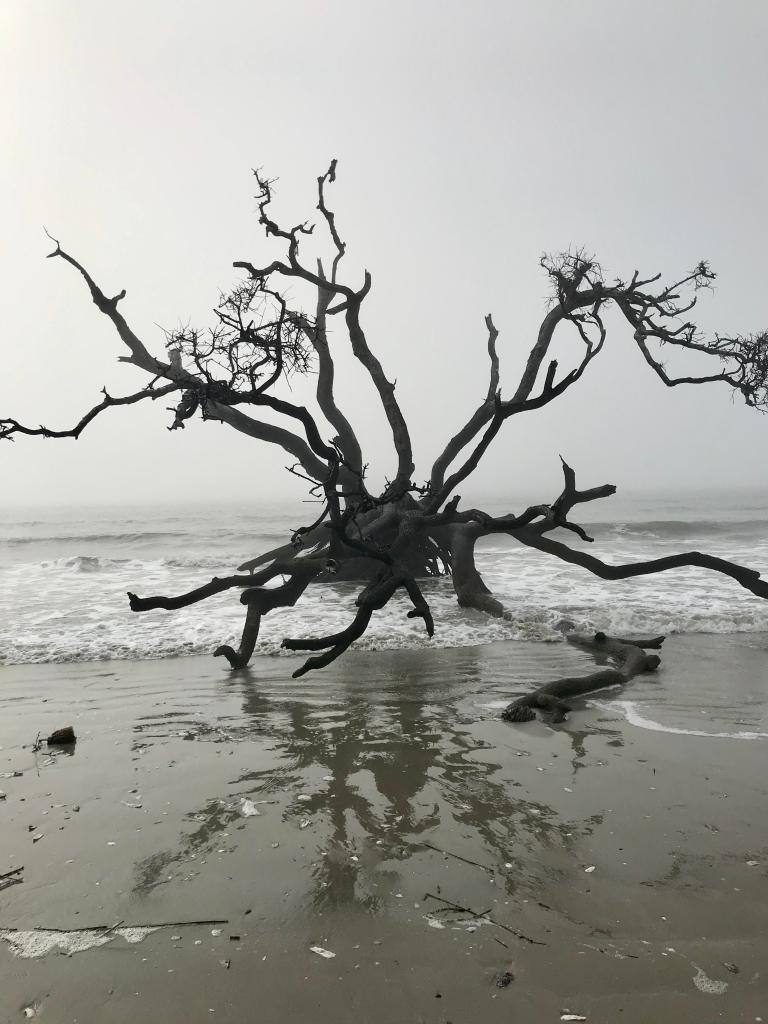
I’ve been dreaming a lot about my parents during the COVID-19 pandemic. They’ve been gone almost 20 years so I’m grateful that these are sweet dreams and not nightmares, but I’ve had plenty of those, too. We all have.
Last night I dreamt that I was walking in a big city with my father. My dad was a giant of a man – 6’4’’ – and you could always find him in a crowd. He had the long legs of a basketball player and it was hard to keep up with him – which always greatly annoyed my 5’4’’ mother. She spent a lot of their 52 years together looking at his backside – and bitching about how fast he walked.
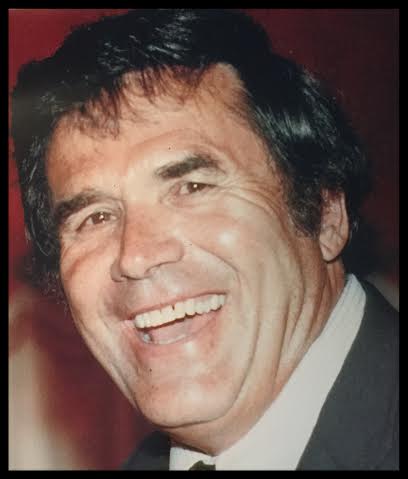
In my dream, we were suddenly separated, and I was surrounded by hundreds of strangers, all walking rapidly as if to catch a train. My heart was pounding, and I wanted to cry when I looked up far in the distance and saw my handsome father’s head towering above everyone else. I called out as loud as I could, “Dad,” over and over again until, finally, he turned and saw me. He smiled and waited as I ran towards him and into that magical feeling of being safe.
Do you remember that feeling? That moment when your breath stills to a whisper and you feel your feet firmly grounded. That moment when you can almost hear your heart humming. God, I miss those moments.
Most of us have been reeling in a maze of confusion and fear and a fair amount of anger the past month or so. My March certainly came in like a lion when a drugged-out guy in a van slammed into my car while I was sitting at a stoplight near RDU. It’s a cliché, but I never saw it coming. I suppose that’s often a blessing – in so many situations. Once the screeching and sound of crushing metal ceased, I heard a calm, sweet voice saying, “Are you okay?” The voice belonged to Dee – a lovely truck driver who was stopped next to me and saw the whole thing happen. She helped me out of my car on the passenger side and stayed with me until the EMTs and state trooper arrived.

My car was totaled and I’m lucky I wasn’t seriously maimed – or worse. I did have some mega bruises on my left hip for a few weeks that looked like a map of the world. Oh, and the guy who hit me abandoned his vehicle – and one of his shoes – and ran away. So, I saw the best and worst of humanity that day – my dear highway guardian Dee who stopped her big rig to check on me and that guy that left me for dead. Moral to this story: Be like Dee.
I’m not exactly an optimist, but I did think that my car being totaled would be the worst thing that would happen in my life in the month of March. Again, such a blessing that we don’t see these things coming. Little did I know that the accident was just the opening act for the cancellation of a long-planned trip to the Holy Land and oh yeah, a global pandemic. Perspective can be a powerful thing.
Even though March was 137 days long, it feels so far away today. Gone are the days where we might have thought this was going to be okay in a few weeks. A week before my trip to Israel was cancelled, the United States reported 70 COVID-19 cases and the nation’s first death in Washington state. That was less than six weeks ago. Today, there are almost half a million cases and over 13,000 deaths. That hoax theory is not aging well, and neither am I. These days are long and the nights often longer.
I spend a lot of time grieving. It’s a horrible new version of a celebrity parlor game – Six Degrees of COVID-19. Most of us know someone who has or had COVID-19 and each passing day, more of us will know someone who has died from the virus. And certainly, everyone knows someone who is on the front lines of caregiving in one way or another. For me, that is my dear sister who is the director of Stanford Healthcare’s oncology clinics in the East Bay California area. Weeks before COVID-19 was on the front burner here in North Carolina, my sister was warning me of how bad it was going to get. She has adapted exceptionally well to her strange new normal. She works long days – always gloved and masked – comes home and takes off her shoes on the front porch. She heads straight to her laundry room, undresses and throws her clothes in the washer before heading to the shower. Wash. Rinse. Repeat.
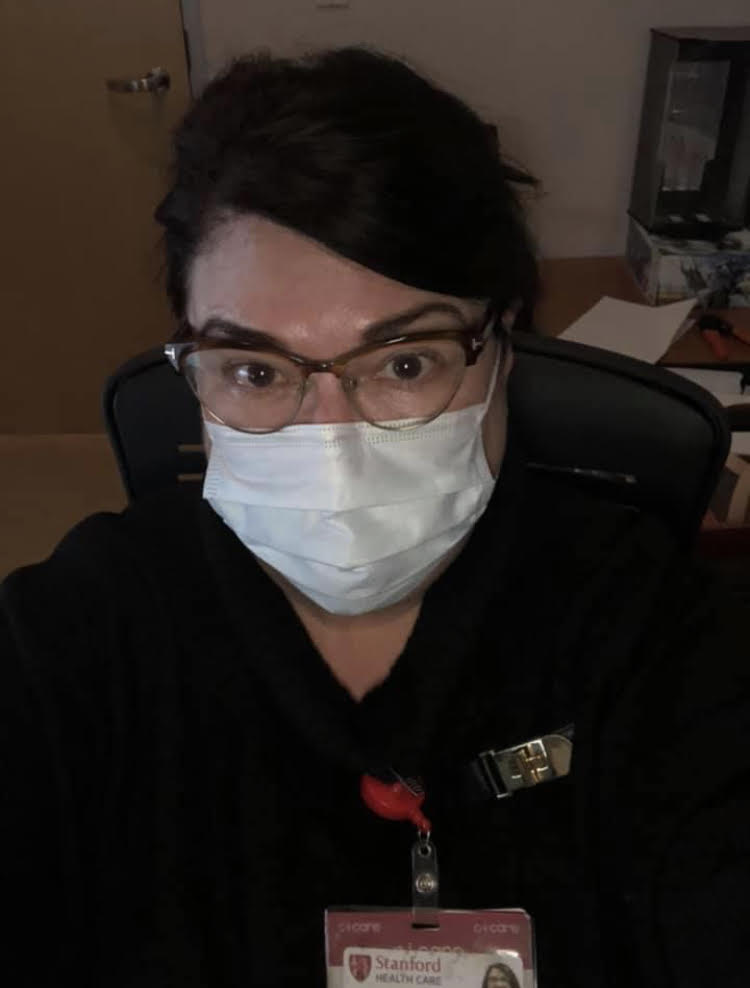
She has a vulnerable respiratory system and I worry (understatement) about her, but her spirit is indomitable and when I speak with her on the phone every day, she makes me feel hopeful that we will get to the other side of this.
I spent a good chunk of my career working in public health to support people living with HIV/AIDS and I learned early on that people were more likely to care about a pandemic when it became personal to them. Every one of us will have a very personal COVID-19 story to share before this is over and we need to tell them in the ways that feel right to us. The dead deserve that. The helpers deserve that. The grieving deserve that, too.
Shelter in place is a phrase we keep hearing repeatedly and I find a disconnect in it. I understand the literal definition of the term, but there are days that I wrestle with it. Those are the days I feel angry and frustrated that I can’t seek shelter in the places that make me feel safe. Places like my church. This week is Holy Week – a sacred and somber week in Christianity as we recount the events leading up to Jesus’ crucifixion and Resurrection.
I am an Episcopalian and like many denominations we have special services on each day this week. About a decade ago, I was going through a dark crisis in my life and suffering deeply. The young intern at my church encouraged me to attend every service of Holy Week. I thought that sounded a little severe, but she suggested that the liturgy of Holy Week might speak to me in a deeper way if I was present at every service. I think she knew I was broken open enough to hear those words in a new way. She could not have been more right. (Disclaimer: Non-believers can bail on this post if this is too much Jesus for you. No hard feelings.) For the first time in my life, I saw my suffering in the suffering of Christ. I felt his wounds as my wounds and perhaps, most importantly, I experienced my resurrection in his. I felt whole again in a way I never had before.

Ever since then, I have attended Holy Week services, well, religiously. So, who knew we would have to give up church for Lent? The rector at my current church is young and cyber savvy and has done a remarkable job of creating online worship opportunities. Zoom is our sanctuary and it has been lovely to see the sweet faces of my community of faith. That said, I’m a cradle Episcopalian and I still feel uneasy wearing flip flops and a T-shirt to church. And I really miss the passing of the peace. At my church, this part of the service goes on for what must feel like an eternity for all the introverts in the parish. But what I miss most is communion – the sharing of the consecrated bread and wine. Without a doubt, this passage from The Book of Common Prayer is why I am an Episcopalian:
“We who are many are one body, because we all share on bread, one cup.”
Even as a child, I think my little bleeding liberal heart loved the idea that a pauper and a prince would drink from the same cup. I worry that COVID-19 might change this sacrament and that makes my heart ache.
The truth is that a lot of things are never going to be quite the same again – and it’s okay to grieve that. Yes, we’re all in this together and the tsunami of gorgeous stories of people helping each other sustains us each day, but before this began, the fear of the other was a real one in our country. A global pandemic won’t help reduce that fear. Neither will government leadership that promotes xenophobia. Yes, the struggle is real and so is the anxiety.
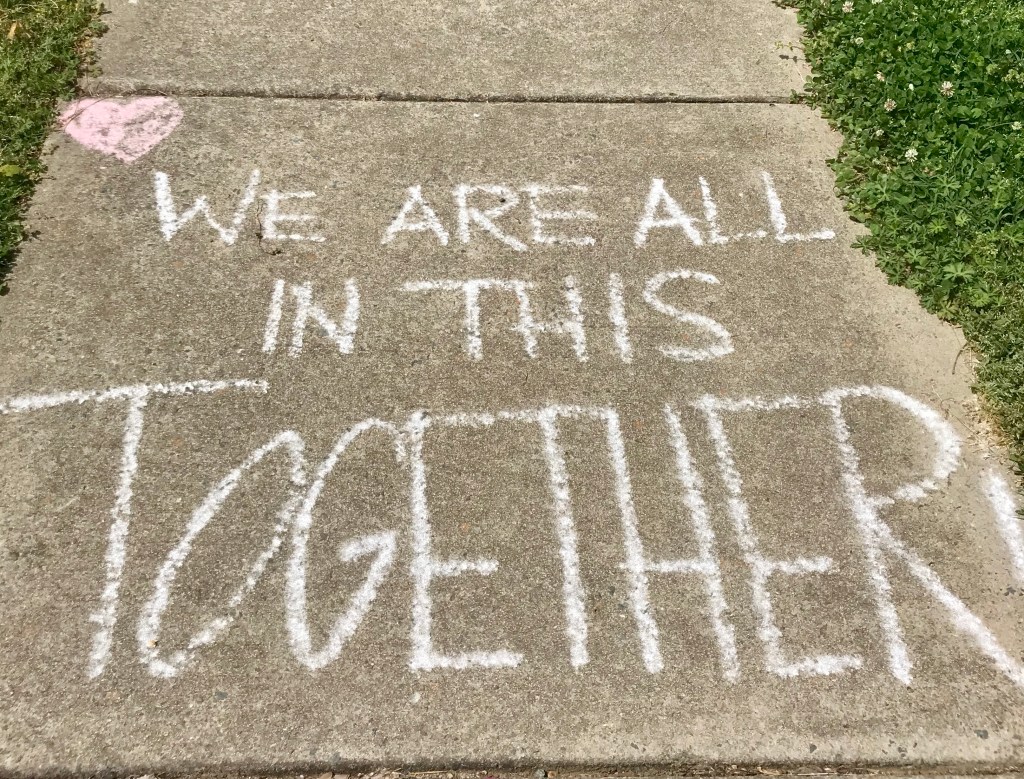
As I stumble through the surreal wilderness of this Holy Week, I am most comforted by thoughts of a beautiful Seder my wife and I attended last year. We were in Washington, DC for the celebration of my most beloved mentor/friend/touchstone Phyllis’ 70th birthday. Her birthday was on Good Friday, which coincided with Passover. Phyllis’ cousin traditionally hosts a huge family Seder – tables and tables pushed together with attendees ranging from about 5 to 95. She graciously invited us as the fortunate chosen Gentiles.
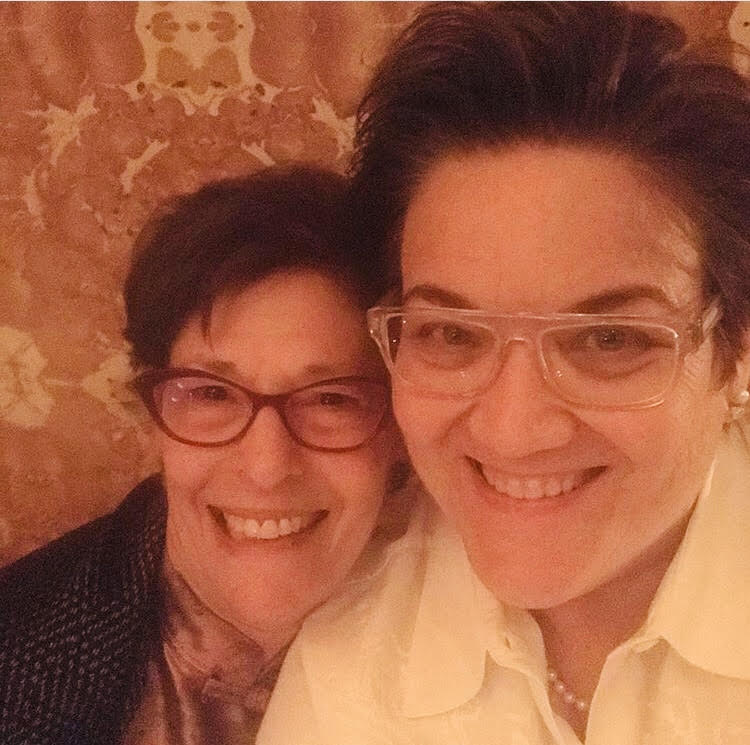
It had been a long time since I had been to a Seder, and I had never been to one so big or elaborate. As the evening began, we took turns reading the stories of the terrible plagues sent by God and inflicted upon Egypt in order to allow the Israelites to depart from slavery and their journey to freedom in Israel. I loved the symbolism and connection of the meal to the story – dipping hard-cooked eggs in salt water to remember the tears of the ancient Israelites and the sharp herbs representing the bitterness of slavery. It was deeply moving and well, I’m not going to lie – I am a big fan of Cousin Davida’s kugel.
The president keeps making the rather ridiculous observation that “America is just not built for this.” I suppose he means the shutdown that most of us are navigating, but I would guess he also means all the suffering this pandemic entails. I think that’s why I’ve been reminiscing about last year’s Seder and hearing – and perhaps understanding in a new way – the tremendous struggles that Jews have endured. I’m not saying that the Jews were built for this, but they surely can teach us a lot about resilience and dealing with despair.
The traditional Passover Seder ends with the Hebrew, “L’Shana Haba’ah B’Yerushalayim.” Next year in Jerusalem. This prayer finishes the Seder’s journey from a reminder of the suffering of the past to hopes for the wholeness and peace of the future.
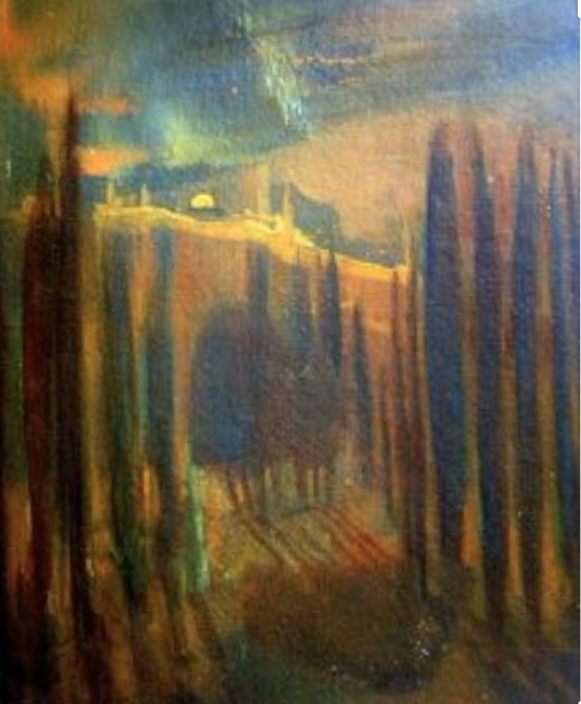
Wholeness. Peace. May it be so for each of us.
Meanwhile, I’m hoping to see that tall handsome man in my dreams again soon.
This post is dedicated to the late great John Prine who died from complications of COVID-19 on April 7, 2020. We’ll miss you like crazy, John.
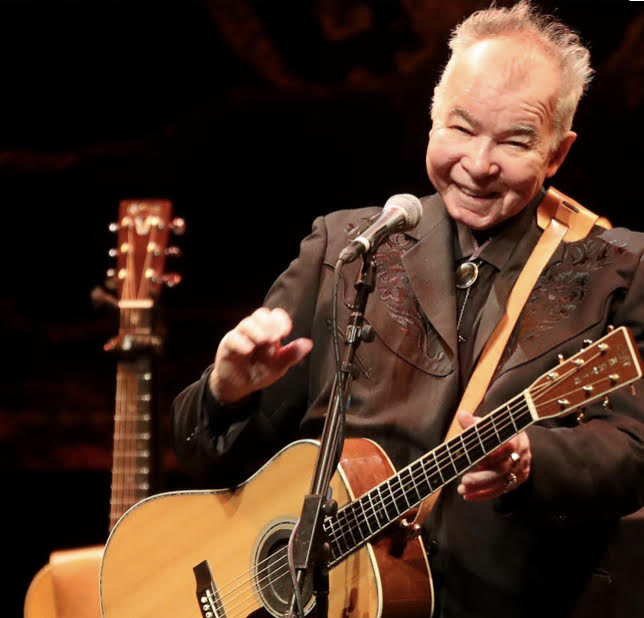
Make me a poster of an old rodeo
Just give me one thing that I can hold on to
To believe in this living is just a hard way to go

Addison, this is beautiful. I too have found comfort in the messages shared by not only our minister but also those words from clergy friends. In fact last Sunday, I binge watched 5 Palm Sunday services. Selfishly though I hope your Maundy Thursday services ends in time for you to pop in on my Zoom birthday party. Last year I celebrated with a radiation treatment and Ativan for chemo nausea and you were with me! This year sheltering in place during a Pandemic. Next year will be the big 6-5! We’re going to have a party
LikeLike
Thank you, dear friend. You certainly win for most unusual birthday parties! And, yes, you have earned an epic party next year! Much love to you and Jack and Will.
LikeLike
Thank you, Addison. As always, I appreciate your beautiful writing and perspective. Peace of the Lord be with you.
LikeLike
Addy, excellent piece! For sure you and Joy will be in Jerusalem next year.
LikeLike
Thank you, Chet! I hope so.
LikeLike